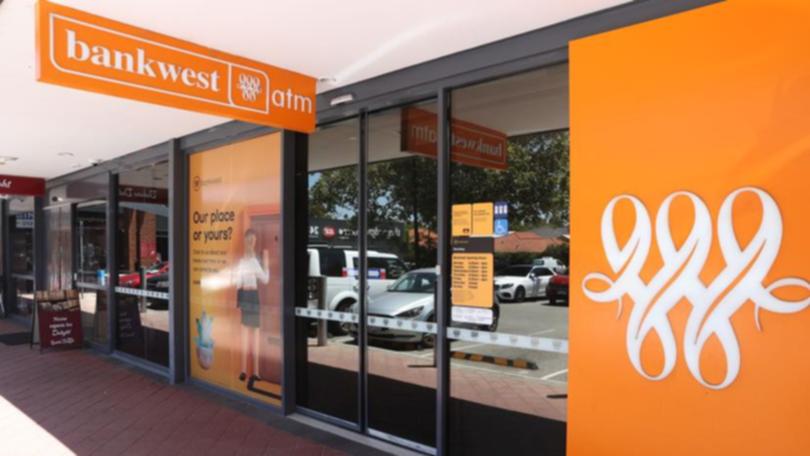Nick Bruining Q+A: Why you shouldn’t be banking with one of the Big Four
Q+A: Tired of branch closures and shoddy service? Looking for a new bank? Here’s why you might find better deals and a far superior customer experience with one of the second-tier lenders.

Question
We are an elderly retired couple living in a regional WA town in the South West.
We recently received notification that our local Bankwest branch is about to close. We were quite distressed with this announcement as, like many of our friends who are seniors, we are wary of using internet banking and prefer to do our banking face-to-face.
Sign up to The Nightly's newsletters.
Get the first look at the digital newspaper, curated daily stories and breaking headlines delivered to your inbox.
By continuing you agree to our Terms and Privacy Policy.What is your advice in our circumstances, and how do we go about selecting a new bank?
Answer
Like many of the large banks, the rationalisation of the branch network has seen many branch closures and, sadly, the Commonwealth Bank-owned Bankwest is no exception.
While we can suggest alternatives, there is no guarantee that any bank will keep branches open if they fail to meet the profitability requirements that ensure the banks can continue to grow profits.
That said, I offer a very pragmatic approach to you and your loved one’s needs, based on my personal experience as power of attorney for a number of estates and then executor.
Sadly, if selecting a new bank, I would not place any of my funds with any of the so-called Big Four. In my view, with these institutions, there is a much greater interest in selling large loans to new, younger customers. There seems little interest in attracting older customers with reasonable deposit rates on savings and term deposit accounts.
My experience as an executor has also been that these institutions offer very little assistance to those with the legal authority to deal with the affairs of another.
Delays are exacerbated significantly when operational matters are referred back and forward between local branches and head offices on the east coast.
Alternatively, my experience with the second-tier banks is significantly better. These are the banks such as Bendigo, BOQ and P&N.
Many of these operations are co-owned with franchisees or community-based companies with “skin-in-the-game”, meaning that the branch is effectively owned by locals.
Staff turnover is typically quite low and this may make it easier to interact with your bank.
It should also be noted that all of these banks are just as safe as the Big Four, with deposits being supported by the Financial Claims Scheme, which guarantees the first $250,000 per account holder per institution.
Question
I would appreciate your advice. I am a single 70-year-old retired person prepared to take a small risk.
What investment mix should I have from the choices of balanced, growth or capital stable?
I am with the Rest superannuation fund and have a balance of about $100,000. Should I be switching to another fund which performs better?
Answer
There is no real reason why you should contemplate changing superannuation funds. Your scheme, like many other industry funds and modern retail funds, operates on a low-cost basis with little difference between them all with respect to fees.
The investment performance will be primarily determined by asset allocation of your money between safer or defensive investments and growth or riskier investments.
If you are prepared to keep an eye on things, you can probably do quite well. The key is to understand the risk/return trade-off of these investment options and the statistical probability of a loss.
For that reason, experts advocate that money required for the short term — typically less than two years — should be held in cash. That way, you have no risk of any declines when you actually need the money.
For the medium term — typically between three and five years — a more defensive approach could be taken and this would involve a mix that typically looks like a capital-stable or conservative fund. These options should be holding about 70 per cent of funds in lower risk assets such as bonds, deposits and credit assets. The balance in blue chip shares.
For longer term — typically five years or more — you should have your money in the more risky assets which will include shares and property.
The trick is to keep an eye on things. On a six-monthly basis, revisit your fund to see what options have made a profit.
If none, then simply leave things alone until they do show a profit. When in profit, you can skim the cream off by transferring the gains across to the cash-option to replenish the pool for your short-term spending needs.
Nick Bruining is an independent financial adviser and a member of the Certified Independent Financial Advisers Association
Originally published as Nick Bruining Q+A: Why you shouldn’t be banking with one of the Big Four

